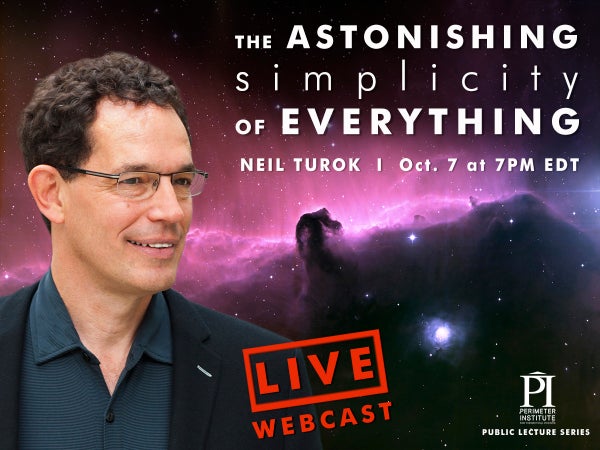Physicists are making the universe more complicated than it needs to be, says eminent theorist Neil Turok, director of the Perimeter Institute for Theoretical Physics in Ontario. Scientists are faced with huge mysteries, such as the makeup of the invisible dark matter that seems to populate space and the explanation behind the dark energy that could be accelerating the expansion of the cosmos. To answer these questions, physicists have come up with increasingly convoluted theories over the past few decades, including myriad versions of string theory and supersymmetry. But these complexities, according to Turok, are unnecessary.
“We’ve gained more information than we even dreamed about 20 years ago regarding the universe from the Higgs boson scale to the entire visible universe,” he says, referring to measurements taken at experiments such as the Large Hadron Collider (LHC) in Switzerland. “What is wonderful is that the data turned out to be simpler than expected.” For example, the Higgs boson discovered at the LHC in 2012 looks by all appearances to be the most basic, boring version of the particle that was predicted. And so far the accelerator hasn’t seen any sign of the exotic partner particles hypothesized by supersymmetry to mirror the known particles in the universe. “Instead we saw extreme simplicity,” Turok says. “The message is that nature has been cleverer than we have and found ways to make the laws of physics consistent without introducing all the bells and whistles with which we theorists have been playing with.”
Turok is calling on physicists to abandon most of the avenues they’re pursuing and instead reach for breakthrough ideas that are simple and novel. “Our existing theories are too contrived, arbitrary, ad hoc,” Turok complains. “I think we could be on the verge of the next big revolution in theory. It will be inspired by the data, by the failure of traditional paradigms. It will change our view of the universe.”
On supporting science journalism
If you're enjoying this article, consider supporting our award-winning journalism by subscribing. By purchasing a subscription you are helping to ensure the future of impactful stories about the discoveries and ideas shaping our world today.
Turok will explain his vision during a public lecture at the Perimeter Institute on Wednesday, Oct. 7 at 7 P.M. Eastern time. His talk will also be broadcast live on this page. Sign up here for an email reminder to watch the webcast. Online viewers can pose questions to Turok by tweeting to @Perimeter and using the #piLIVE hashtag.
You can view videos of some past Perimeter physics lectures below:
The Man Who Explained the Atom [Video]
The Future of Cosmology [Video]
The Upgraded LHC and the Search for the Higgs Boson [Video]
String Theory LEGOs for Black Holes [Video]
